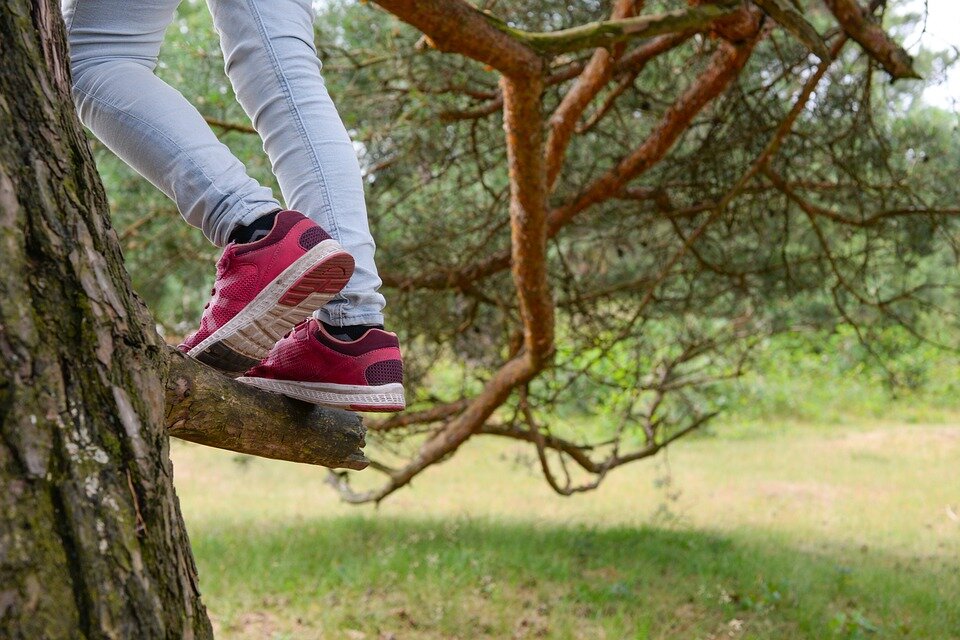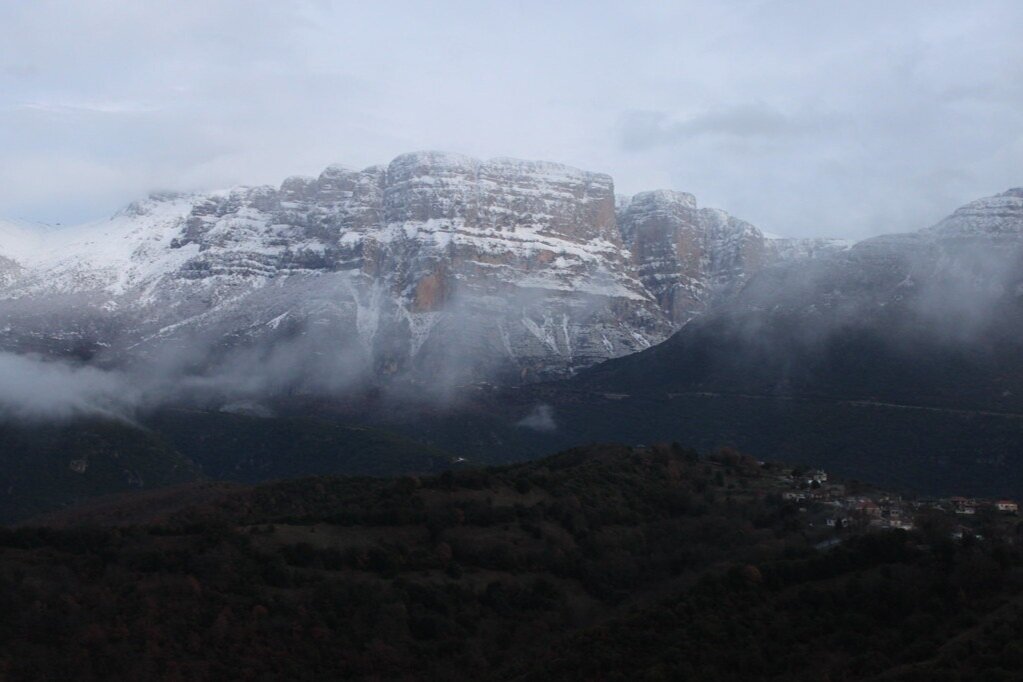By Dr Chris Loynes
Adventure. It is hard to remember what a five year old boy was feeling when he climbed the hawthorn tree on the common or got his new two-wheeled bike airborne. What comes to mind is already a rich mix of emotions – the joy in being able to climb or ride fast; the thrill of movement; the solitude amongst the high branches; the delight at being able to reach a foothold for the first time – a celebration of my self in the world. As a teenager the technologies and locations changed but my memories feel essentially the same – planing the dinghy in a strong wind; finding a line through the pinnacles on a ridge; seeing stalactites very few others would ever see. Joy, ‘Yes To Dance’ as Jim Perrin put it. My bike was still with me, taking me out on my own in wild winter weather onto the Somerset levels amongst the floods and the wintering birds. As a young man, seeing the novel and extraordinary volcanic and glacial landscapes of Iceland or the Towers of Papingo in the Pindus Mountains continued to ‘broaden my horizons’. These memories are richer; the possibilities of exploring a novel landscape, curiosity about the natural processes, the wildlife, the people for whom this was home. And I found I enjoyed sharing these experiences with like-minded others and then to opening the door to others for whom this was a whole new world.
Papingo
Adventurer: someone who understands the world as dynamic and of which we are a part; someone who enters the flow of things with a huge curiosity; an explorer of both inner and outer worlds. Peradventure, more than just chance, because we are actors in relationship with this extraordinary world. Perhaps.
Adventure Education. Tom Price, an early warden of Outward Bound Eskdale, marvelled at how two ideas that he thought of as oil and water, chalk and cheese – adventure and education, somehow came together in the Outward Bound experience. Oblivious of OB, I had the extraordinary opportunity in my first teaching job to work with truanting teenagers outdoors. We had no blueprint. We made it all up together – whatever we could do in a twenty minute minibus ride from the school. A favourite was getting muddy head to feet while finding a way through the creeks and marshes at low tide. The goal for each student was to undertake a self-reliant journey of their own design by the end of the two years. Exploring themselves in the world had the desired impact of keeping them in school and getting them enough qualifications to go to college. It was a success, not, for me because of the exam results, but because of so many young people participating in the world joyfully as a result of an ‘education’.
Outward Bound
Only later did I come across other programmes. Some like mine but, to my mind, too many that had emasculated the idea of adventure as I understood it. In some hands it had become reduced to achieving success in over-designed challenges of which the high ropes course became, to me, a symbol of putting ‘adventure in a bun’ – the Macdonaldisation of something creative and dynamic that I loved. The inner passion to explore the world had been replaced by an outer challenge to match up to a world determined by someone else. Tom Price would turn in his grave. A significant aspect of the dilemma was how, in these activities, ‘adventure’ had become equated with ‘risk’. For me, risk was a secondary concern to be managed. Like avoiding getting scalded when boiling a kettle to make a great cup of coffee, risk management was necessary in order to allow the complex, dynamic and wonderful experience of adventure to flourish in a way that society would allow as education. Another concern was how the ‘activity’ had become the singular focus of the experience. From early on, for me, it had always been about where the activity, my bike for example, could take me; not just the experience of riding but of riding in places and with the elements. An employer of mine had two ropes courses. The one amongst the trees was always the most popular with participants. Perhaps they also had a sense that ‘where’ mattered as much as ‘how’. In any case the modern structure beside the car park become redundant.
So here we are; a world in which young people roam social media unchecked and unsupervised whilst, if they stray outside at all, they are leashed and supervised into conformity and a dull plod through extraordinary opportunities for adventure. That is, of course, unfair. Pre-school children are exploring the extraordinary world of woodlands driven by their curiosity in the capable hands of forest school leaders. Micro-adventures are drawing others out into their surroundings inspired by a new wave of adventurers and technologies like SUP’s and ATB’s.
The head of maths was both the school disciplinarian and a sailor so, when my group challenged him to a dinghy race, I was anxious! They not only rigged the dinghies, they set out the course and managed the safety boat and ‘let’ him win! On return he announced he was ‘going straight to the headteacher’. What had he seen that I had missed? At the end of the school day the head was waiting outside my classroom. The head of maths had seen his students in a new light. He was planning to change his teaching to base it around our programme - knots, navigation, forces on hull and sail. Would I like to lead a scale up of the programme with three more staff and truants joining in from neighbouring schools? Adventure is on the edge of ‘normal’. It may always have a restless relationship with education. Fortunately, young people always become restless. Adventure will have gatekeepers, like my headteacher - and my parents, who understand this, and enable it to flourish.
It is a privilege to live in a society that has, however contested, a space for adventure. But adventure is a privilege not everyone enjoys. It is also a privilege that involves a risk we have only recently acknowledged, a carbon footprint. These are matters that need to be addressed. Some might argue that adventure is frivolous, a childlike way to spend time, that, in adulthood, can be childish. Others have another view. Colin Mortlock argued for the ‘adventure alternative’. He saw, like Baden Powell, Charlotte Mason, Kurt Hahn, Bridget, Lady Plowden and others before him, the maturation of a young adventurer. He appreciated the love of life and a love for the world that develops. He did not see adventure as an ‘escape’ but as experiences from which we learn how to participate in the world as citizens, to emerge knowing ‘what I have to give?’ As Robin Hodgkin -- mountaineer, guide, headteacher, academic – remarked, the role of the educator is to place intriguing devises in front of young people for them to explore and then accompany them while they find their own meaning in the experience. In good hands, adventure can enrich both lives and societies.
By Dr Chris Loynes, Reader in Outdoor Studies, University of Cumbria
…
Explorers Connect has recently launched Adventure Mind - a conference to promote positive mental health through adventurous activity, featuring world-leading researchers in the field, which will include Chris Loynes (the writer of this blog). The event will take place in London, 27th-28th Feb 2020, with tickets available from £175 (including the conference, networking dinner, accommodation, and breakfast). Book your tickets here.




